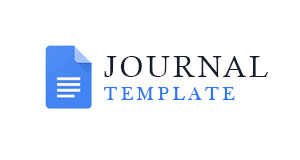The Effect of Perceived Organizational Support and Leader-Member Exchange on Organizational Commitment in Muhammadiyah Waqf Organization
Abstract
Muhammadiyah, as one of the oldest Islamic organizations in Indonesia, is an organization that has been active in the management of waqf for a long time, which has a tremendous social impact on Indonesian society. However, this organization is still facing obstacles in the direction of reliable human resources for waqf managers. Organizational commitment is a vital aspect in shaping this superior human resource, and social exchange theory has long been recognized as a critical factor in explaining the formation of this organizational commitment. By focusing on perceived organizational support (POS) and leader-member exchange (LMX) factors, this study offers research results in the form of proven influence of POS on organizational commitment, the absence of LMX influence on organizational commitment, POS influence on LMX, and no evidence of LMX impact as a mediating variable on the effect of POS on organizational commitment.
Keywords
Full Text:
PDFReferences
Ahmed, I., Nawaz, M. M., Ali, G., & Islam, T. (2015). Perceived Organizational Support and Its Outcomes: A Meta-Analysis of Latest Available Literature. Management Research Review, 38(6), 627–639. https://doi.org/10.1108/MRR-09-2013-0220
Al Arif, M. N. R., Arisman, A., & Harahap, D. (2021). Export, Political Stability, and Growth in Developing-8 Countries. Studies of Applied Economics, 39(2). https://doi.org/10.25115/eea.v39i2.3448
Allen, N. J., & Meyer, J. P. (1996). Affective, Continuance, and Normative Commitment to the Organization: An Examination of Construct Validity. Journal of Vocational Behavior, 49, 252–276.
Arisman, A., Al Arif, M. N. R., & Harahap, D. (2021). Trade Agreement and Economic Growth: Evidence in D-8 Countries. Signifikan: Jurnal Ilmu Ekonomi, 10(2), 311–324. https://doi.org/10.15408/sjie.v10i2.21457
Aube, C., Rousseau, V., & Morin, E. M. (2007). Perceived Organizational Support and Organizational Commitment: The Moderating Effect of Locus of Control and Work Autonomy. Journal of Managerial Psychology, 22(5), 479–495. https://doi.org/10.1108/02683940710757209
Baylis, T. A. (1980). Collegial Leadership Advanced Industrial Societies: The Relevance of the Swiss Experience. Polity, 13(1), 33–56.
Blau, P. M. (1961). Justice in Social Exchange. Sociological Inquiry, 261, 193–206.
Cahyani, U. E., Ardiansyah, M., & Sunaryati, S. (2020). Islamic Social Reporting and Financial Distress In List of Sharia Securities. IQTISHADIA, 13(2), 157. https://doi.org/10.21043/iqtishadia.v13i2.7756
Cahyani, U. E., Hanafi, S. M., & Masruri, S. (2022). The Nexus Between University Support and Entrepreneurial Mindset: Does Entrepreneurship Education Matter? Indonesian Journal of Business and Entrepreneurship. https://doi.org/10.17358/ijbe.8.3.351
Cahyani, U. E., Masruri, S., & Hanafi, S. M. (2022). DOES ENTREPRENEURSHIP EDUCATION MATTER FOR ISLAMIC HIGHER EDUCATION STUDENTS’ ENTREPRENEURIAL READINESS? Jurnal Ekonomi Bisnis dan Kewirausahaan, 11(2), 258. https://doi.org/10.26418/jebik.v11i2.55092
Cahyani, U. E., Sari, D. P., & Afandi, A. (2022). Determinant of Behavioral Intention to Use Digital Zakat Payment: The Moderating Role of Knowledge of Zakat. ZISWAF: JURNAL ZAKAT DAN WAKAF, 9(1), 1. https://doi.org/10.21043/ziswaf.v9i1.13330
Eisenberger, R., Huntington, R., Hutchison, S., & Sowa, D. (1986). Perceived Organizational Support. Journal of Applied Psychology, 71(3), 500–507.
Feng, W., Jean, L., & Kwan, H. K. (2016). Impact of Active Constructive Leadership and Passive Corrective Leadership on Collective Organizational Commitment. Leadership & Organization Development Journal, 37(7), 822–842. https://doi.org/http://dx.doi.org/10.1108/LODJ-08-2014-0150
Ferdinand, A. (2014). Metode Penelitian Manajemen: Pedoman Penelitian untuk Penulisan Skripsi, Tesis, dan Disertasi Ilmu Manajemen (5 ed.). Semarang: Badan Penerbit Universitas Diponegoro.
Garg, S., & Dhar, R. L. (2014). Effects of Stress, LMX and Perceived Organizational Support on Service Quality: Mediating Effects of Organizational Commitment. Journal of Hospitality and Tourism Management, 21, 64–75. https://doi.org/10.1016/j.jhtm.2014.07.002
Graen, G. B., & Uhl-Bien, M. (1995). Relationship-Based Approach to Leadership: Development of Leader-Member Exchange (LMX) Theory of Leadership over 25 Years: Applying a Multi-Level Multi-Domain Perspective. Leadership Quarterly, 6(2), 219–247.
Graen, G., & Novak, M. A. (1982). The Effects of Leader-Member Exchange and Job Design on Productivity and Satisfaction: Testing a Dual Attachment Model. Organizational Behavior and Human Performance, 30, 109–131.
Ghozali, I. (2013). Aplikasi Analisis Multivariate dengan Program IBM SPSS 21 (VII). Semarang: Badan Penerbit Universitas Diponegoro.
———. (2014). Structural Equation Modeling Metode Alternatif dengan Partial Least Square (PLS): Dilengkapi Software Smartpls 3.0, Xlstat 2014, dan WarpPLS 4.0 (4 ed.). Semarang: Badan Penerbit Universitas Diponegoro.
Habibaty, D. M. (2017). Kompetensi Nazhir pada Wakaf Produktif Ditinjau dari Undang-Undang No 41 Tahun 2004 tentang Wakaf. Al-Awqaf: Jurnal Wakaf Dan Ekonomi Islam, 10(2), 154–161.
Harahap, D. (2017). Determinan Dana Pihak Ketiga Bank Syariah di Indonesia: Model Vector Autoregresive. IQTISHADIA, 10(1). http://dx.doi.org/10.21043/iqtishadia.v10i1.2432
Haryono, S. (2017). Metode SEM untuk Penelitian Manajemen dengan AMOS LISREL PLS (1 ed.). Jakarta Timur: Penerbit Luxima Metro Media.
Hasan, T. (2011). Pemberdayaan Nazhir. Al-Awqaf: Jurnal Wakaf Dan Ekonomi Islam, 4(4), 1–14.
Hasibuan, A. N. (2022). The Role of Company Characteristics in the Quality of Financial Reporting in Indonesian. Jurnal Ilmiah Peuradeun, 10(1), 1. https://doi.org/10.26811/peuradeun.v10i1.666
Hoexter, M. (1998). Waqf Studies in the Twentieth Century: The State of the Art. Journal of the Economic and Social History of the Orient, 41(4), 474–495. Retrieved from https://www.jstor.org/stable/3632717
Ilyas, M. (2017). Profesionalisme Nazhir Wakaf dalam Pemberdayaan Ekonomi Wakaf. Al-Qada’u: Peradilan Dan Hukum Keluarga Islam, 4(45), 71–94.
Irshad, E., & Naz, S. (2011). Job Satisfaction, Organizational Commitment and Personality Traits: A Relationship Study. Journal of Humanities & Social Sciences, XIX(2), 37–60.
Islam, T., Khan, S. ur R., Ahmad, U. N. U. B., & Ahmed, I. (2013). Organizational Learning Culture and Leader-Member Exchange Quality: The Way to Enhance Organizational Commitment and Reduce Turnover Intentions. The Learning Organization, 20(4/5), 322–337. https://doi.org/10.1108/TLO-12-2012-0079
Jahar, A. S. (2011). Nazhir Wakaf Uang di Indonesia. Al-Awqaf: Jurnal Wakaf Dan Ekonomi Islam, 4(2), 85–98.
Jaiswal, D., & Dhar, R. L. (2016). Impact of Perceived Organizational Support, Psychological Empowerment and Leader Member Exchange on Commitment and Its Subsequent Impact on Service Quality. International Journal of Productivity and Performance Management, 65(1), 58–79. https://doi.org/10.1108/IJPPM-03-2014-0043
Lee, J. (2005). Effects of Leadership and Leader-Member Exchange on Commitment. Leadership & Organization Development Journal, 26(8), 655–672. https://doi.org/10.1108/01437730510633728
Leveson, L., Joiner, T. A., & Bakalis, S. (2009). Managing Cultural Diversity and Perceived Organizational Support: Evidence from Australia. International Journal of Manpower, 30(4), 377–392. https://doi.org/10.1108/01437720910973061
Loi, R., Hang-yue, N., & Foley, S. (2006). Linking Employees' Justice Perceptions to Organizational Commitment and Intention to Leave: The Mediating Role of Perceived Organizational Support. Journal of Occupational and Organizational Psychology, 79, 101–120. https://doi.org/10.1348/096317905X39657
Mathieu, J. E., & Zajac, D. M. (1990). A Review and Meta-Analysis of the Antecedents, Correlates, and Consequences of Organizational Commitment. Psychological Bulletin, 108(2), 171–194.
Megheirkouni, M. (2017). Revisiting Leader-Member Exchange Theory: Insights into Stadia Management. International Journal of Event and Festival Management, 8(3), 244–260. https://doi.org/10.1108/IJEFM-03-2017-0022
Meyer, J. P., & Allen, N. J. (1984). Testing the "Side-Bet Theory" of Organizational Commitment: Some Methodological Considerations. Journal of Applied Psychology, 69(3), 372–378.
Meyer, J. P., & Allen, N. J. (1991). A Three-Component Conceptualization of Organizational Commitment. Human Resource Management Review, 1(1), 61–89.
Mumford, M. D., Friedrich, T. L., Vessey, W. B., & Ruark, G. A. (2012). Collective Leadership: Thinking About Issues Vis- a-Vis Others. Industrial and Organizational Psychology Perspectives on Science and Practice, 5(4), 408–411. https://doi.org/https://doi.org/10.1111/j.1754-9434.2012.01469.x
Mushonga, S. M. (2017). Organizational Connections: The Moderation of Subordinate POS in the Relationship between LMX and Work Outcomes. Journal of Management Research, 9(1), 100–116. https://doi.org/10.5296/jmr.v9i1.10434
Nazir, O., & Islam, J. U. (2017). Enhancing Organizational Commitment and Employee Performance through Employee Engagement: An Empirical Check. South Asian Journal of Business Studies, 6(1), 98–114. https://doi.org/10.1108/SAJBS-04-2016-0036
Nystrom, P. C. (1990). Vertical Exchanges and Organizational Commitments of American Business Managers. Group & Organization Studies, 15(3), 296–312.
Ospina, S. M., & Foldy, E. G. (2016). Collective Dimensions of Leadership. Global Encyclopedia of Public Administration, Public Policy, and Governance. https://doi.org/10.1007/978-3-319-31816-5_2202-1
Pimpinan Pusat Muhammadiyah. Anggaran Dasar dan Anggaran Rumah Tangga Muhammadiyah. 5 ed. Yogyakarta: Pimpinan Pusat Muhammadiyah dan Suara Muhammadiyah, 2010.
———. Laporan Majelis Pimpinan Pusat Muhammadiyah Periode 2010-2015 (Disampaikan pada Muktamar Muhammadiyah Ke-47 Makassar, 3-7 Agustus 2015). Makassar, 2015a.
———. Laporan Pimpinan Pusat Muhammadiyah (Disampaikan pada Muktamar Muhammadiyah Ke-47 Makassar, 3-7 Agustus 2015), 2015b.
Rasyid, A. (2019). DINAMIKA PELAKSANAAN SERTIFIKASI HALAL PADA PRODUK MAKANAN DAN MINUMAN DI KOTA MEDAN, SIBOLGA DAN PADANGSIDIMPUAN. MIQOT: Jurnal Ilmu-ilmu Keislaman, 43(2), 167. https://doi.org/10.30821/miqot.v43i2.640
Rhoades, L., & Eisenberger, R. (2002). Perceived Organizational Support: A Review of the Literature. Journal of Applied Psychology, 87(4), 698–714. https://doi.org/10.1037//0021-9010.87.4.698
RICO NUR ILHAM, IRADA SINTA, MANGASI SINURAT, ABDUL NASSER HASIBUAN, & LAKHARIS INUZULA. (2022). THE EFFECT OF MACRO ECONOMIC FACTOR ON STOCK RETURN OF STATE-OWNED ENTERPRISES (BUMN) LISTED ON THE INDONESIA STOCK EXCHANGE. https://doi.org/10.5281/ZENODO.6938564
Ridwan, M. (2012). Nazhir Profesional Kunci Kesuksesan Wakaf Produktif. Muqtasid: Jurnal Ekonomi Dan Perbankan Syariah, 3(1), 91. https://doi.org/10.18326/muqtasid.v3i1.91-109
Rizal, H., & Amin, H. (2017). Perceived Ihsan, Islamic Egalitarianism and Islamic Religiosity Towards Charitable Giving of Cash Waqf. Journal of Islamic Marketing, 8(4), 669–685. https://doi.org/10.1108/JIMA-05-2015-0037
Rukiah, R., Nuruddin, A., & Siregar, S. (2019). Islamic Human Development Index di Indonesia (Suatu Pendekatan Maqhasid Syariah). Jurnal Istinbath, 18(2). https://www.istinbath.or.id/index.php/ijhi/article/view/171
Rusydiana, A. S., & Devi, A. (2017). Analisis Pengelolaan Dana Wakaf Uang di Indonesia: Pendekatan Metode Analytic Network Process (ANP). Al-Awqaf: Jurnal Wakaf Dan Ekonomi Islam, 10(2), 115–133.
Scandura, T. A., Graen, G. B., & Novak, M. A. (1986). When Managers Decide Not to Decide Autocratically: An Investigation of Leader-Member Exchange and Decision Influence. Journal of Applied Psychology, 71(4), 579–584. https://doi.org/10.1037/0021-9010.71.4.579
Sekaran, U. (2006). Metode Penelitian untuk Bisnis (Buku 2) (4th ed.). Jakarta: Salemba Empat.
Srivastava, A. P., & Dhar, R. L. (2016). Impact of Leader Member Exchange, Human Resource Management Practices and Psychological Empowerment on Extra Role Performances: The Mediating Role of Organisational Commitment. International Journal of Productivity and Performance Management, 65(3), 351–377. https://doi.org/10.1108/IJPPM-01-2014-0009
Sugiyono. (2015). Metode Penelitian Manajemen (4th ed.). Bandung: Penerbit Alfabeta.
Truckenbrodt, Y. B. (2000). The Relationship Between Leader-Member Exchange and Commitment and Organizational Citizenship Behavior. Acquisition Review Quarterly—Summer, 233–244.
Undang-Undang Republik Indonesia Nomor 41 Tahun 2004 tentang Wakaf. Indonesia, 2004.
Utsman, H. (2011). Peran Nazhir Dalam Mengelola Wakaf Uang. Al-Awqaf: Jurnal Wakaf Dan Ekonomi Islam, 4(4), 15–22.
Wayne, S. J., Shore, L. M., Bommer, W. H., & Tetrick, L. E. (2002). The Role of Fair Treatment and Rewards in Perceptions of Organizational Support and Leader-Member Exchange. Journal of Applied Psychology, 87(3), 590–598. https://doi.org/10.1037//0021-9010.87.3.590
Wayne, S. J., Shore, L. M., & Liden, R. C. (1997a). Perceived Organizational Support and Leader-Member Exchange: A Social Exchange Perspective. Academy of Management Journal, 40(1), 82–111.
Wayne, S. J., Shore, L. M., & Liden, R. C. (1997b). Perceived Organizational Support and Leader-Member Exchange: A Social Exchange Perspective. Academy of Management Journal, 40(1), 82–11. https://doi.org/10.2307/257021
DOI: https://doi.org/10.24952/tijaroh.v8i1.4967
Refbacks
- There are currently no refbacks.
Copyright (c) 2022 At-tijaroh: Jurnal Ilmu Manajemen dan Bisnis Islam

This work is licensed under a Creative Commons Attribution-ShareAlike 4.0 International License.








